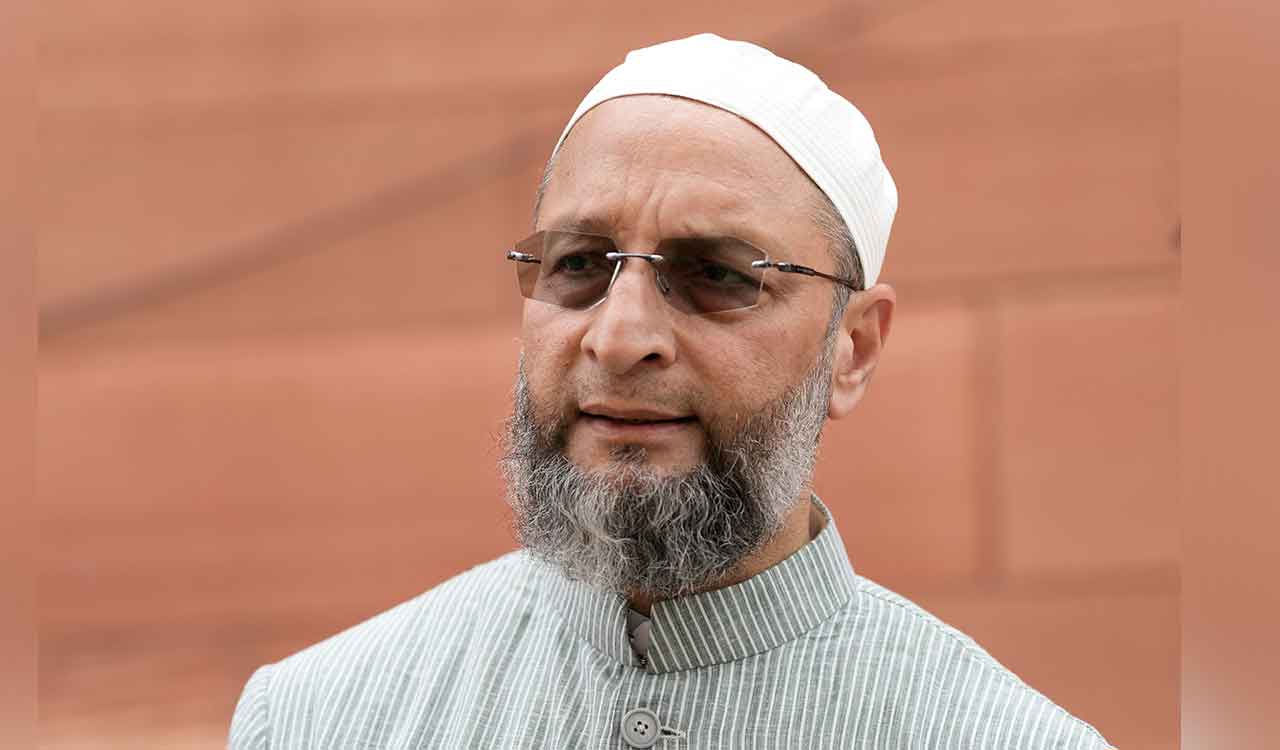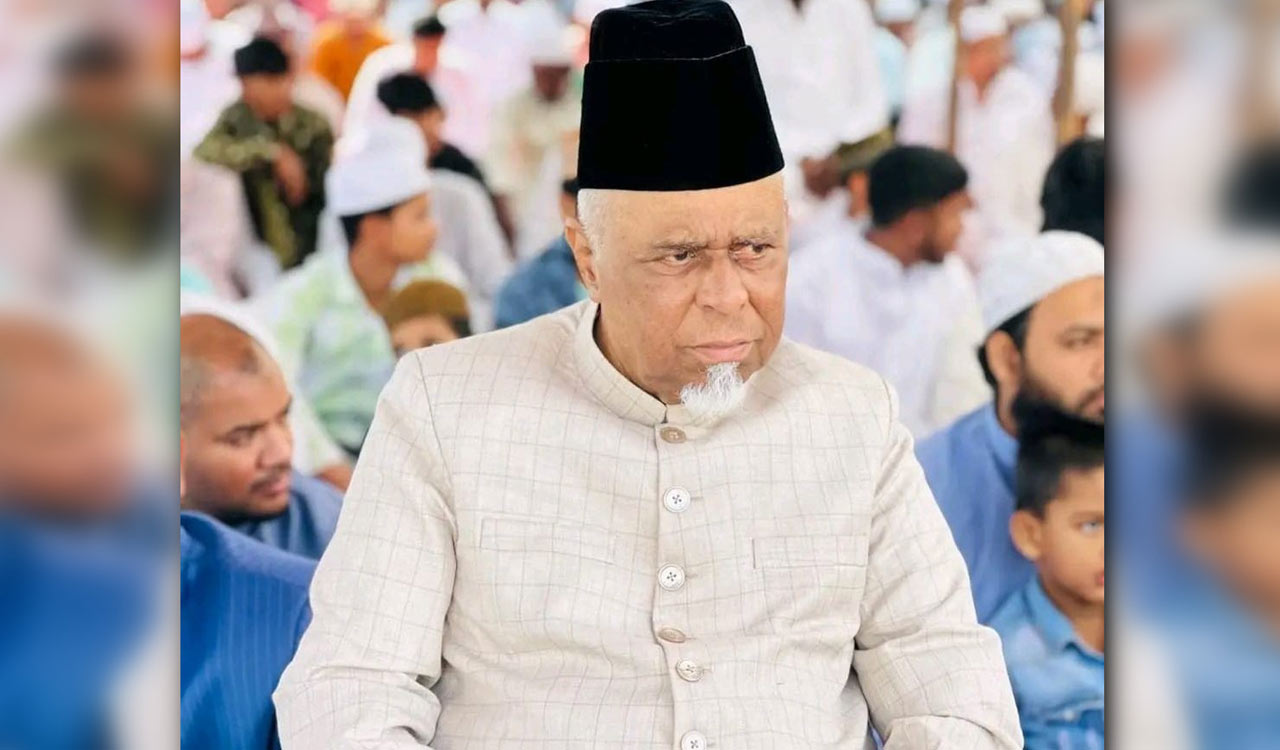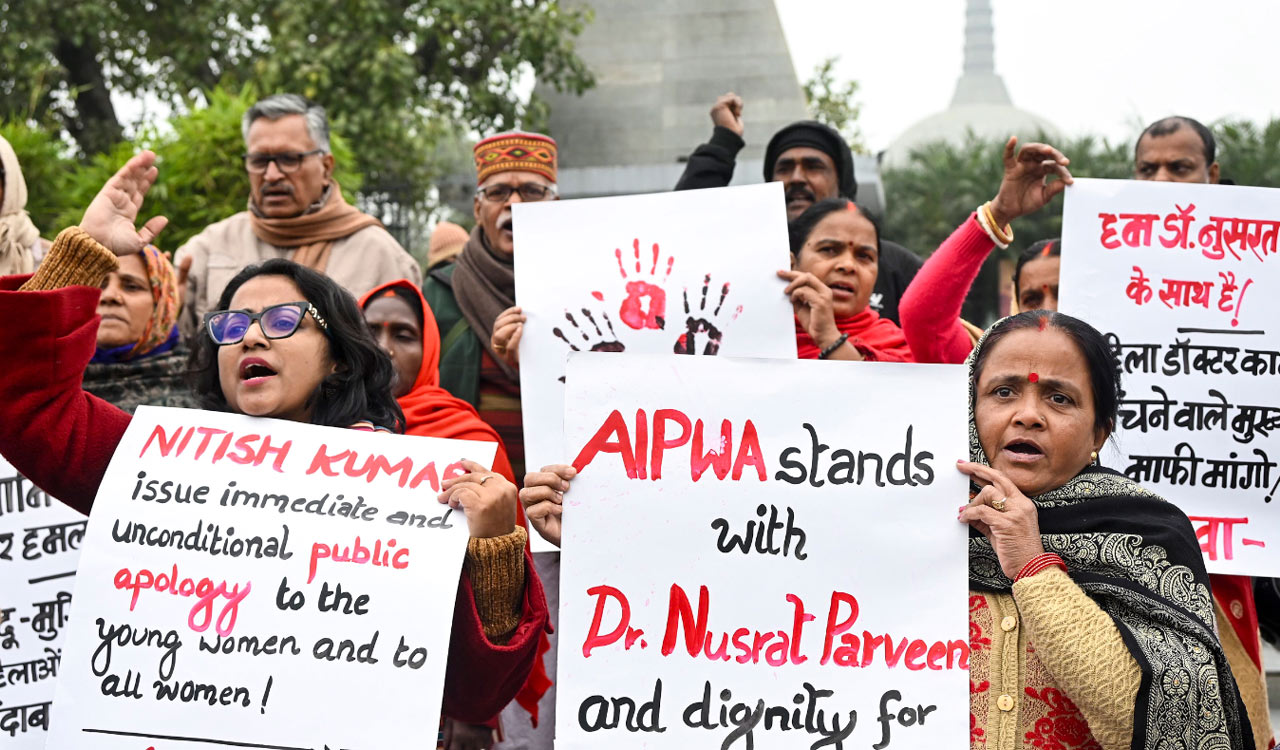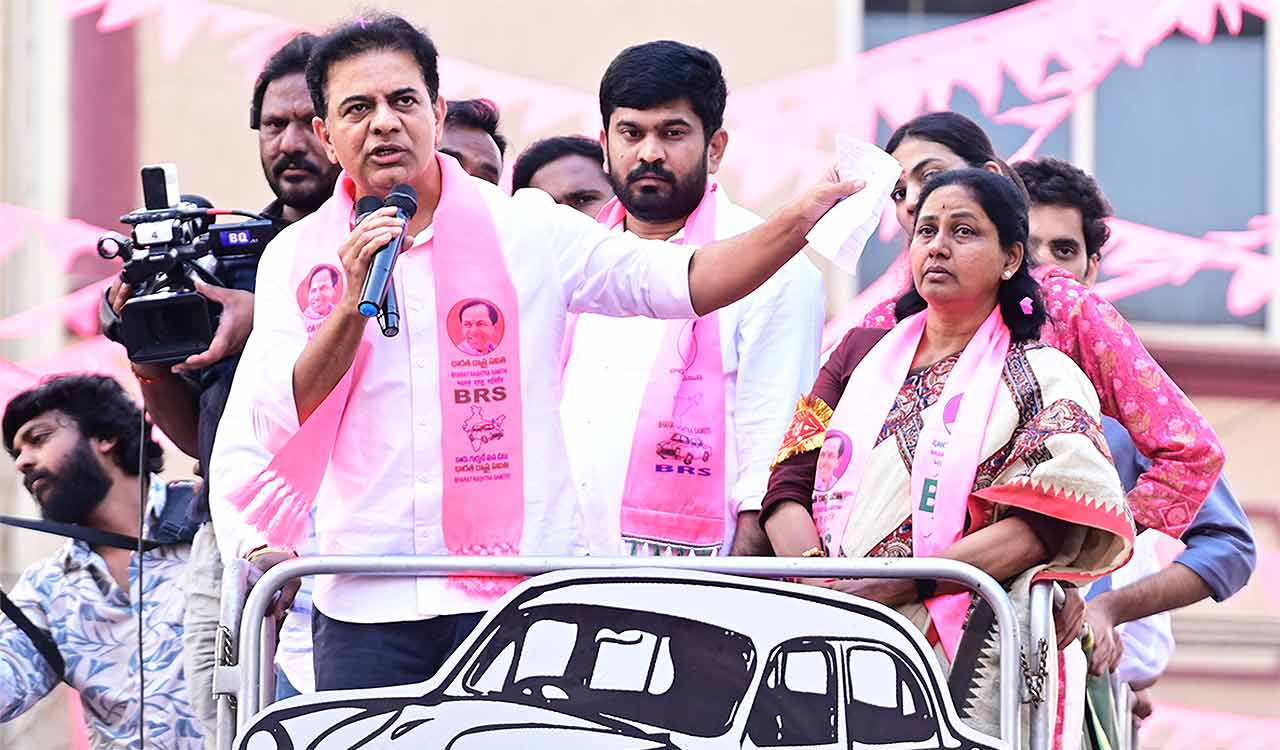Education and political power key to Muslim empowerment, says Asaduddin Owaisi
Addressing the concluding session of Quadrigenia 2025, he stressed the importance of active participation in governance and educational initiatives to uplift the community

Hyderabad: Political power and educational excellence is the best bet for the empowerment of the Muslim community. Only by harnessing these two forces could the community claim its rightful place in the country, asserted Hyderabad MP, Asaduddin Owaisi.
Addressing the concluding session of Quadrigenia 2025, a four-day event marking the 40th anniversary of Deccan College of Medical Sciences (DCMS) here on Sunday evening, he stressed the importance of active participation in governance and educational initiatives to uplift the community.
Owaisi said the establishment of numerous educational institutions by the Darus Salam Education Trust was a direct result of the political strength gained by the All India Majlis-e-Ittehadul Muslimeen (AIMIM) under the leadership of its late president, Sultan Salahuddin Owaisi. Recognising the transformative power of education and healthcare early on, Sultan Salahuddin Owaisi took significant strides to ensure their development.
“The political clout of the Majlis was achieved through the support of the people, and in return, we have made the voters citizens with rights,” Owaisi remarked.
Reflecting on the journey of DCMS and other institutions, he credited his grandfather, Abdul Wahed Owaisi, for his visionary belief in education being the cornerstone of socio-economic upliftment. This vision was furthered and realized by his father, Sultan Salahuddin Owaisi. Today, the institutions under the Darus Salam Educational Trust have produced over 5,000 doctors, 15,000 engineers, and countless graduates. This achievement, Owaisi emphasised, would not have been possible without political power. “Without power, people won’t even listen to you,” he stated.
Recounting the origins of DCMS, he recalled how in 1984, the party secured the establishment of a medical college when N Bhaskar Rao was the Chief Minister of Andhra Pradesh. At that time, Bhaskar Rao needed political backing, and Salahuddin Owaisi leveraged this situation to demand the sanctioning of a medical and engineering college for the Darus Salam Educational Trust.
Though some, including a BBC correspondent, questioned the democratic nature of this move, Salahuddin Owaisi defended his decision by asking, “Is keeping the largest minority community backward and illiterate democratic?” This bold step, he argued, altered the destiny of the community.
Many doubted Salahuddin Owaisi’s ability to manage these institutions, considering his lack of formal higher education and his reputation for emotional speeches. An elite section even advised him to hand over control of the colleges to them. However, Salahuddin Owaisi remained resolute in his commitment and proved his critics wrong by successfully running the institutions and ensuring their growth.
Owaisi urged the Muslim community to empower itself through education and political influence, asserting that these were the key tools to claiming their rightful place in society and safeguarding their identity.
Also present at the event was Akbaruddin Owaisi, MLA and Trustee of Darus Salam Educational Trust, along with other trustees, including Syed Ahmed Pasha Quadri, Abdul Muneem Saith, and Syed Shah Ali Akbar Nizamuddin Hussaini.
Dr Ashfaq Hasan, Principal of DCMS, spoke about the college’s efforts to embrace modern advancements in medicine. He announced plans to collaborate with renowned institutions in the USA and UK to further enhance the college’s academic and research capabilities.
The event concluded with Owaisi presenting awards to DCMS alumni who have made significant contributions in various countries. This recognition highlighted the global impact of the institution and its role in shaping medical professionals who serve communities worldwide.
Related News
-
India ready to lead global AI revolution: PM Modi
8 mins ago -
Telangana Human Rights Commission seeks report on advocate Swapna Kumari murder
14 mins ago -
Property owners, activists oppose Musi Riverfront project, allege secrecy
15 mins ago -
Hyderabad: Woman’s body kept in Kukatpally flat for four days, police probe on
19 mins ago -
Hyderabad: Rowdy sheeter Mohd Asad, seven associates arrested for attempt to murder
29 mins ago -
Arsenal cruises into FA Cup last 16 as heavyweights progress
29 mins ago -
Actor Trisha slams ‘distasteful’ remarks by BJP leader in Tamil Nadu
34 mins ago -
Three arrested in University of Hyderabad laptop theft case
34 mins ago




